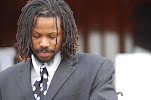What is truth?
>> Tuesday, December 8, 2009
As part of a political science class, we had to write a self-exploratory essay. Our first question was:
What is true and how is truth determined?
Here is my response:
To be true is to be honest, genuine and sincere. True is the opposite of false, that being unreal, factually inaccurate or fake.
We typically determine truth based on our ability to “prove” it. How do you know that I am the author of this paper? You know it is true because you choose to believe it. Truth – although positioned as provable through the use of scientific processes, or mathematical expressions, is built on a system of faith and agreement upon values.
Unless you believe, or know, rather, that the number two is represents “two,” than you will not believe that two plus two equals four. You have to agree to the system of Arabic numbers that represent. These are just ideas. Therefore, while it is “true” to those who believe that system, it would be untrue to those who do not agree with that system or are ignorant of that system.
Therefore, there are different levels of truth. There is partial truth. This is where something is “partially truth.” For instance, I, Reginald James, and the author of these words and ideas being expressed; however, I am not the sole originator of this language or the thoughts I am expressing. So, am I truly the author, or is there some greater force manipulating me to produce this?
There is the concept of complete truth. This could be best illustrated when someone reveals all the knowledge they know to be relevant to a situation.
There is absolute truth. Absolute truth is the complete, utter, undeniable knowledge of the element of truth.
But truth is a non-tangible substance.
When individuals are sworn in at a trial, they are asked, “Do you swear to tell the truth, the whole truth and nothing but the truth?” This speaks to the manner in which truth can be manipulated. By omitting part of the truth, one can skew the facts in a manner that misrepresents the truth. Ironically, a person can gain credibility by admitting to partial truth, but mislead later with falsehood.
A person can also not know the whole truth, and believe that they do.
There is personal truth, relative truth and objective truth.
Our personal truth is those things that we hold to be self-evident. Our relative truth is based on our own perceptions, compared to what others know or believe. Lastly, there is the objective truth. This can be best described in the physical space. Other truths are often based on the unseen or not provable – I cannot prove to an atheist that God exists, just as one could not prove to me that God does not. That is because it is a personal truth that has been relayed to me through life experience.
However, it could be possibly proven that a person lived for a certain period of time. This could be done through birth records, photographs, etc. However, that objective truth stands alone on its own merit – although that too can be interpreted and manipulated.
Ultimately, truth is. Truth is a force that cannot be corrupted; we can only corrupt ourselves against it. We cannot erase the truth; we can only erase people’s memory of the truth.



0 comments:
Post a Comment